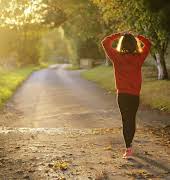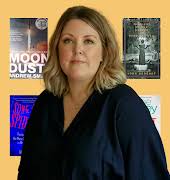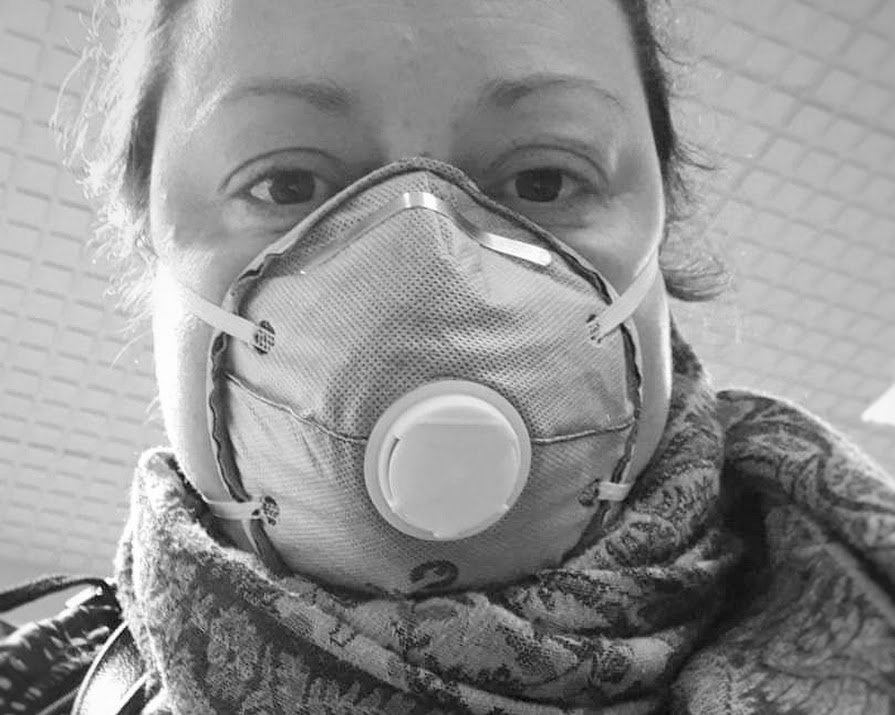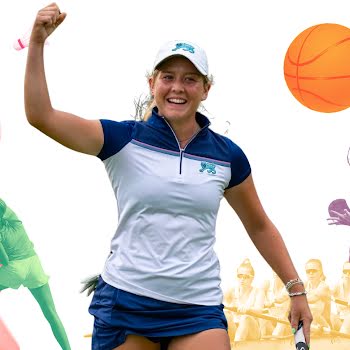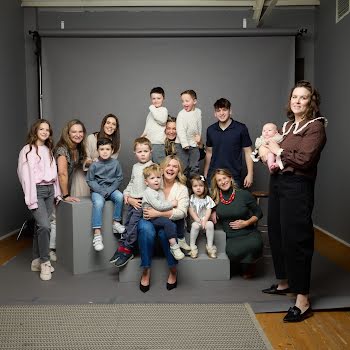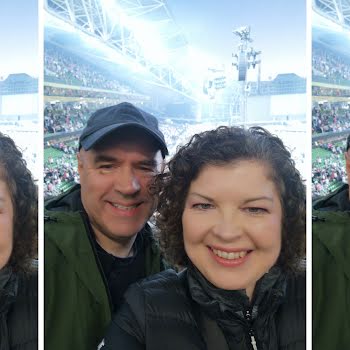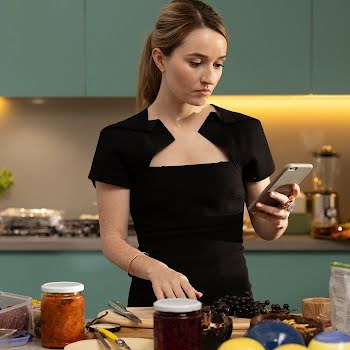
Long Covid: ‘I never expected chronic fatigue and its impact on my family’
As final restrictions lift, one aspect of Covid-19 that remains is the debilitating effects of Long Covid, which can linger in the body long after you've had symptoms. Aoife Moore details the life-altering effect it has had on her and her family
“It began Friday, March 13 2020. This was the first day of lockdown when the schools were closed. We didn’t really know much about Covid-19. Up to this point, people were living their lives as normal but the situation was changing rapidly,” said Aoife, 38, from East Galway.
“My kids had been to GP for tonsillitis a few days prior so I just presumed that my sore throat that Friday was the same. Over the weekend feeling unwell and very cold, unable to get warm. I didn’t have a temperature.
“Then, on Monday the cough started, followed by non-stop chest pain. It’s unmistakable. It feels like your lungs are being grated raw, or like I was breathing in fire. No energy, completely fatigued, no restful sleep felt like I was more in and out of consciousness at times. I had a loss of smell and taste and tested positive for Covid when I got my results, almost two weeks after I went to my GP with symptoms. I was predominantly bedridden for all of that time and a long time after.”
Long Covid symptoms
Her GP, she said, told her there was no reason she shouldn’t fully recover from it. But several months later, she is still feeling seriously debilitating symptoms that hugely affect her everyday life.
One of the most predominant symptoms is chest pain. “I have had seven months of feeling like someone was sitting on my chest. Sometimes sharp in the middle. It feels like there are knots in each of my lungs. Breathing sometimes burns or feels like the sharp cold you get when you breathe in on a frosty morning.”
But there are other symptoms too. “Frequent sores in my mouth and on my tongue. Cuts take much longer to heal. Joint pain and swelling especially in my hands, hips, legs and feet. I cannot do anything physical, as my lung capacity has greatly reduced. I long for a walk. I cannot sing, have to talk songs to kids at bedtime. I cannot laugh, if I laugh too hard I get such awful pains in my lungs, or cough incessantly until I collapse in exhaustion. I cannot talk too much, just short conversations.”
Chronic fatigue
And then came the chronic fatigue. “But the worst symptom for me is profound chronic fatigue. This does not mean tiredness! Fatigue is a whole-body problem. If you hold your arms out in front of you or to the side and try to keep them up, eventually, no matter how fit you are, they will start to ache and you will get the urge to drop them. Imagine you can’t.
“When I’m not lying down, I feel like I’m constantly trying to hold my arms up, my back up, my legs, my head. It may look like I’m sitting but it’s draining me to be upright. Any physical exertion is really draining. It is graded – lying down is best, sitting is better than standing, walking is better than going upstairs. Too much and I get heart palpitations and my eyesight starts to tunnel, as if I’m about to faint. This is what fatigue does to my body.”
“Chronic fatigue is not just physical aches and pains but also mental fatigue or brain fog, lack of concentration and forgetfulness. You cannot remember things. There’s an inability to follow conversations, watch TV, read a book. You will forget what you were saying mid-sentence. You can’t make decisions on even simple things like what to eat for dinner. You feel in a daze.”

At this point, Aoife told me that none of the above, or that she’s in bed most of the time, is not, nor has ever been, normal for her. She is a busy mum of two and was always involved in many activities and organisations within her local community. “I’m always doing something, I’m never idle. But I’ve had to withdraw from all those things to put my health first. I haven’t had the mental capacity to take on multiple things at once.”
She had hoped to be over the worst of it by the summer. “But September 2020 came and the physical toll of getting kids ready for school caused my body to relapse. It felt like it did at the start.
“As well as being physically in pain, it also took a toll on my mental health. I thought if I took good care of myself, rested, and kept the head down for the summer I would be okay. But the relapse caused me to realise that there is no finish line, no date by which I will magically go back to being me. It’s been tough. It’s felt lonely. It’s negatively impacted my mental health.”
Improvement, Aoife says, is slow. And as the disease is so new, even doctors are limited in what they can do to successfully treat symptoms.
“I have improved since then, but progress is so slow. It felt like I plateaued for about six weeks not moving forward at all. Only in the past two weeks have I seen a recent improvement. I’ve come to accept that there is no quick fix or one size fits all. Every person with Covid has different symptoms and to different degrees of severity. So I have started to look at alternative ways to treat my symptoms other than paracetamol.”
Guilt
Aoife is raising her two children with her husband Kerill and explains how deeply and severely Covid-19 has impacted the lives of the whole family. The guilt she feels, she says, is immense, with there being little to no support or respite for the partners of those suffering from Long Covid.
“I constantly feel guilty. I feel so useless. My husband has effectively been my carer and a single parent on top of working from home and cooking dinners, washing clothes etc. As wonderful as he is this has been a difficult time for us. Usually, we are a team who take on things together but now everything rests on his shoulders, he has no help, no respite. He sometimes is frustrated at the situation but he never complains and is so supportive.
“I also constantly feel like a failure when it comes to parenting. My 3-year-old son has Autism and developed severe separation anxiety when I first contracted Covid. He would cry for me but I wouldn’t be able to get out of bed to him. Things have improved since then, especially as he has started preschool, but I am not back to full parenting capacity. I would not be physically able to look after both kids by myself for extended periods of time which means my husband rarely gets a break.”
“What I don’t think people realise is that the long term effects of Covid have the potential to impact every part of your life. It’s not just physical. It affects your family, your kids, your mental health, your finances… absolutely every part of your life.”
Despite all the difficulties she and her family have endured, Aoife says she recognises that she’s lucky in many ways. “I’m lucky to have a supportive husband who is able to carry the load while I’m sick. I’m very privileged that I have help and support at home. As bad as it got, I recognise that having Long Covid could be so much worse if I was a single parent, or living with domestic violence, or living alone, or living in direct provision, or living in poverty or any other number of situations. I never forget that, and I am so grateful.”
Support
Aoife says support and viable treatment options are needed for Long Covid patients across the country now.
“Everyone is waiting for a vaccine but that could be years. Lots of viruses don’t have vaccines. We can’t just sit and wait. Covid requires its own individual healthcare response rather than being lumped in with other areas.
I joined Covid Cases Ireland Facebook group where people with Covid and particularly Long Covid can share experiences, information. In that group, I discovered there were Post-Covid Clinics in Dublin. I had never heard of such clinics. Similar to most services in Ireland, these clinics appear to be Dublin centric. I understand that this may be due to the high number of Covid patients in Dublin, but I can’t help but feel a bit left on my own to figure this out. Being the only person in my area of East Galway according to NPHET is lonely. GPs are very competent and lovely but ultimately they don’t have information, resources or a strategy for Long Covid patients.
“What I would like to see is a national framework for treating patients with Covid or Long Covid, particularly for supporting GPs who are usually the first point of contact. We need more of these Post-Covid clinics being set up nationwide where the patient is examined in a comprehensive manner. Otherwise, you just have inequality of care where your ability to recover from this virus depends on where you live or how much you can afford to spend on consultants and specialists.”
This article was originally published in December 2020







